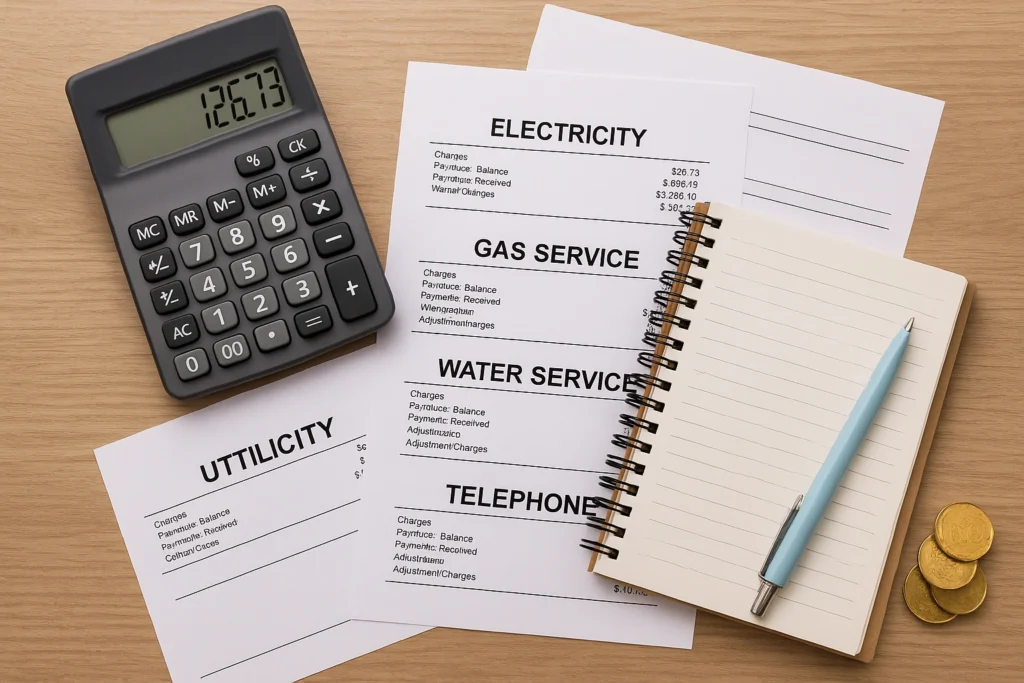Managing money wisely is more important than ever. No matter how much you earn, if you don’t control your spending, savings will always feel out of reach. The good news? You don’t have to give up everything you love. With a few smart money saving tips and ideas, you can cut expenses, save consistently, and achieve financial freedom.
This blog covers practical strategies to save money daily, reduce bills, and plan for the future.
Why Saving Money Matters
- Emergency fund: Covers unexpected medical bills or car repairs.
- Debt freedom: Helps you pay off high-interest loans faster.
- Financial goals: Makes dreams like buying a house or traveling achievable.
- Peace of mind: Reduces financial stress and anxiety.
Everyday Money Saving Tips and Ideas

1. Create a Budget and Stick to It
Use the 50/30/20 rule: 50% for needs, 30% for wants, 20% for savings. Free apps like Mint or YNAB help track spending.
2. Cook at Home
One of the best frugal living tips. Preparing meals saves hundreds each month and is healthier. Plan weekly menus and shop in bulk.
3. Cancel Unused Subscriptions
Review streaming, apps, or gym memberships. Cancel what you rarely use and share family plans where possible.
4. Shop Smart
Look for coupons, cashback, or loyalty rewards. Apply the 30-day rule before buying non-essentials to avoid impulse spending.
5. Practice Minimalism
Buy fewer, better-quality items. Focus on value instead of chasing trends.
Cut Down Bills and Utilities

1. Save on Electricity and Water
- Switch to LED bulbs.
- Fix leaks and install water-saving fixtures.
- Turn off appliances when not in use.
2. Reduce Internet and Phone Costs
Downgrade to affordable plans or negotiate with your provider. This is one of the simplest ways to reduce monthly bills.
3. Automate Payments
Avoid late fees by setting up autopay. Some companies even offer small discounts for it.
Smart Shopping and Groceries

1. Buy Generic Brands
Generic products often match branded quality at lower prices.
2. Shop Off-Season
Clothes, electronics, and furniture are much cheaper after peak season.
3. Use Loyalty Programs
Supermarkets and retailers offer reward points that can cut down future expenses.
4. Save on Groceries
Make a list before shopping, avoid buying when hungry, and stick to essentials.
Travel Money Saving Tips and Ideas

1. Book Early and Stay Flexible
Flights and hotels are cheaper when booked in advance. Flexible travel dates save even more.
2. Use Public Transport
Instead of taxis, use buses or metro passes. A big saving for frequent travelers.
3. Choose Budget-Friendly Stays
Airbnb, hostels, and budget hotels are cost-effective and comfortable.
4. Pack Light
Avoid baggage fees by packing only what you need.
Family-Friendly Money Saving Tips

1. Buy in Bulk
Essentials like rice, pasta, and cleaning supplies are cheaper in bulk.
2. Embrace Secondhand
Kids outgrow items quickly. Thrift stores, online marketplaces, or hand-me-downs work perfectly.
3. Free or Low-Cost Entertainment
Game nights, picnics, and library visits are great family money saving ideas.
4. Teach Kids About Money
Give them small allowances and encourage saving in a piggy bank.
Advanced Saving Strategies
1. Automate Your Savings
Set up automatic transfers to your savings account. Even small amounts grow over time.
2. Pay Off High-Interest Debt First
This prevents interest from eating into your income.
3. Refinance Loans
If interest rates have dropped, refinancing can lower monthly bills.
4. Start Investing
Consider index funds or retirement accounts for long-term financial growth.
Work and Career Money Saving Ideas
1. Bring Your Own Lunch
A practical daily hack — saves over 25% each month compared to buying lunch.
2. Use Employer Benefits
Health insurance, retirement matching, or discounts are free money. Don’t ignore them.
3. Work From Home (If Possible)
Remote work reduces commuting and daily expenses like coffee or snacks.
Quick Daily Money Hacks
- Walk or cycle instead of driving short distances.
- Borrow books or tools instead of buying.
- Try one “no-spend day” each week.
- Buy quality items that last longer.
Conclusion
Saving money is not about living a restricted life — it’s about making smarter choices with your income. By applying these money saving tips and ideas, you can cut unnecessary expenses, grow your savings, and move closer to financial freedom.
Start with small steps like cooking at home, canceling unused subscriptions, or automating your savings. Over time, these habits will create a strong financial foundation.
💡 Remember: It’s not about how much you earn, but how wisely you manage and save. Begin today, and your future self will thank you.
The easiest ways include cooking at home, avoiding impulse shopping, using public transport, and setting a daily spending limit. Small changes add up to big savings over time.
You can reduce monthly bills by switching to energy-efficient appliances, canceling unused subscriptions, negotiating with your service providers, and lowering your data/phone plan.
Families can save money by buying essentials in bulk, reusing or buying secondhand items, planning free entertainment like picnics or game nights, and teaching kids basic budgeting habits.
Start by setting aside a small percentage of your income every month. Automate transfers into a separate savings account until you reach at least 3–6 months of living expenses.
It depends on your situation. If your debt has a high interest rate (like credit cards), pay it off first. If interest rates are low, balance both by saving some money while gradually reducing debt.






